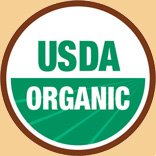| Back to Back Issues Page |
 |
|
Your Health & Wellness, Iss #87 -- Food for a Healthy Lifestyle November 01, 2011 |
(Guide to a Healthy Lifestyle) If you like this ezine, please do a friend and me a favor and pass it along. If a friend DID forward this to you and if you like what you read, please subscribe by visiting subscribe
Food for a Healthy Lifestyle If one thing is true and common for all humanity it is the fact that we all have to eat to live. And in order to eat, we all spend a certain percentage of our income for food. We spend money on food whether we hold a job or are on a fixed-income. But the question we should be asking ourselves is, "Am I getting value for my money?" Not only should food appeal to our taste buds, but it should be nutritious too. It must contain nutrients such as vitamins, minerals, protein, and healthy fats. Food that merely tastes good, but does nothing to supply the body with the raw materials to build and maintain itself, is useless bulk that only fills the belly. Food that is swarming with contaminants like GMOs, pesticides, antibiotics, artificial colors, flavors, and sweeteners are likewise useless. They will only guarantee you and your family the likelihood of disease and a trip to the doctor. Unfortunately the food commercially available today is a wolf in sheep's clothing. It doesn't resemble anything that our grand- and great-grandparents ate. In their day there didn't exist genetically-modified organisms in the food supply (these foods are aptly referred to as frankenfood.) Artificial sweeteners such as high fructose corn sugar, aspartame, also known as NutraSweet and Equal, and sucralose (Splenda) weren't invented then either. And of course cattle and poultry were raised on family farms with full access to sunlight, air, and their natural diets. This is unlike today where conventional meat is sourced from factory farms (also known as CAFO or concentrated animal feeding operations.) Like modern manufacturing plants, these farms are run like assemble lines turning out consumer products like automobiles or computers. These living animals are treated like nonliving products too. They are crammed into unsanitary pens, and made to stand in their own urine and feces. And in order to get them as large as possible, or to get as much milk as possible from them, the animals are given steroids to boost production. They are also given antibiotics to fight the disease which naturally occurs in such inhumane conditions. Of course the pesticides and herbicides which are used on the grain they are fed, as well as the antibiotics, are stored in the animal's fatty tissue. This tissue remains in the processed meat and winds up on your dinner plate. Our grandparents didn't have tons of monosodium glutamate in their food either. Bad trans fatty acids were also unknown. Modern supermarkets are literally crammed with packaged, processed food. Grab any one of them and read the ingredient label. You would need an advanced degree in chemistry to read - let alone understand - the chemicals used. Simple food ingredients like butter, flour, and eggs are no longer used. Mad scientists in corporate laboratories create multi-syllable chemical compounds to mimic them. And the produce is no better. They are so pesticided, fungicided, and herbicided that once you are aware, you get a guilty conscience by even thinking about consuming them and sharing with your family. The modern processes used by the food industry breeds disease and nutritionally lacking products. It is no wonder there are so many recalls due to food-borne pathogens. You certainly don't get any value for your hard-earned money if you buy conventionally grown produce or dairy and meat products. You are just playing Russian roulette with your health. The only food that will provide a healthy lifestyle is organic. Many studies have shown that organic produce contains a greater percentage of nutrients than conventionally grown produce. And in order to avoid steroids, antibiotics, pesticides, and the ever-present danger of eating meat from which the animal was fed genetically grain, you have to purchase only organic, green fed (grass-fed) meat. You want to make sure that the animal was slaughtered humanely too. Kosher or biblically killed animals will have a health benefit just like eating organic produce.
Buy your fruits and vegetables from a trusted local farm or farmer's market. Fresh is always best. If that isn't an option, frozen, organic is next best. I recently discovered a beyond organic option. Beyond Organic goes beyond what the USDA Organic seal represents. The processing is also minimal, and animals are slaughtered in a humane way. Beyond Organic was started by New York Times bestselling author Rubin Jordan who wrote the enormously popular book The Maker's Diet. A portion of my food budget will be used to buy meat and other products from Beyond Organic. I am thus assured that this food will provide me with a healthy life and lifestyle. Learn more about Beyond Organic 'clicking' on this Beyond Organic link. Joseph Elijah Barrett, Webmaster www.Living-A-Healthy-Lifestyle.com We have comprehensive information for all of your diet, health, and nutritional needs; extensively cross referenced. Your one stop health website. wellness@living-a-healthy-lifestyle.com
|
| Back to Back Issues Page |
 To get started on an organic diet, make certain to look for the
To get started on an organic diet, make certain to look for the 